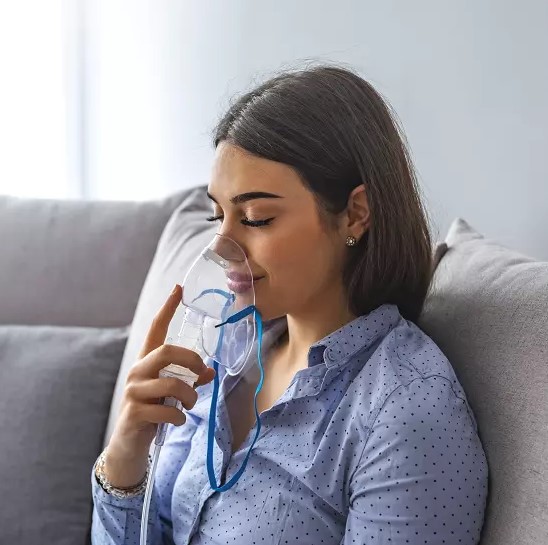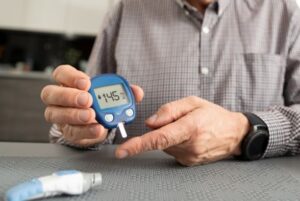When it comes to managing respiratory conditions, finding effective treatments that provide immediate relief and long-term benefits is crucial. Nebulization has emerged as a groundbreaking solution that offers targeted respiratory relief and improved health outcomes. In this post, we will delve into the world of nebulization, exploring its benefits, applications, and how it can transform your respiratory well-being.
Targeted Relief for Respiratory Conditions:
Nebulization is a highly effective method of delivering medication directly to the lungs, offering targeted relief for a wide range of respiratory conditions. Whether you’re dealing with asthma, chronic obstructive pulmonary disease (COPD), bronchitis, or other respiratory ailments, nebulization is designed to ensure that medication reaches the affected areas with utmost efficiency and precision.
The process of nebulization involves the use of a nebulizer, a device that converts liquid medication into a fine mist or aerosol. This mist is then inhaled through a mask or mouthpiece, allowing the medication to reach deep into the airways and directly target the source of the respiratory issue.
One of the key advantages of nebulization is its ability to deliver medication directly to the site of action. The fine mist generated by the nebulizer allows the medication to penetrate deep into the lungs, reaching the bronchioles and alveoli where it is most needed. This direct delivery ensures that the medication effectively addresses the underlying inflammation, reducing swelling and irritation in the airways.
By reducing inflammation, nebulization helps to open up the air passages, allowing for improved airflow and easier breathing. This can be particularly beneficial for individuals with conditions such as asthma, where the airways tend to become constricted, leading to wheezing, shortness of breath, and chest tightness. Nebulization helps to relax and dilate the airways, providing immediate relief and promoting better respiratory function.
Moreover, the fine mist produced during nebulization enables the medication to coat the entire respiratory tract, including hard-to-reach areas. This comprehensive coverage ensures that the medication effectively treats the entire respiratory system, addressing not only the symptoms but also the root causes of the condition.
Nebulization is especially valuable for individuals who may have difficulty using other inhalation devices, such as handheld inhalers or dry powder inhalers. Young children, elderly individuals, and those with compromised manual dexterity can benefit from nebulization as it requires minimal coordination and effort to inhale the medication.
In summary, nebulization is a highly effective method of delivering medication directly to the lungs, providing targeted relief for a variety of respiratory conditions. By generating a fine mist that reaches deep into the airways, nebulization reduces inflammation, opens up the air passages, and promotes easier breathing. If you’re battling respiratory ailments such as asthma, COPD, bronchitis, or others, nebulization can offer significant benefits by ensuring efficient and precise delivery of medication to the affected areas. Speak to your healthcare provider to explore nebulization as a treatment option and discover the transformative effects it can have on your respiratory health.
Improved Lung Function and Respiratory Health:
By delivering medication directly to the lungs, nebulization helps improve lung function and overall respiratory health. Medications administered through nebulizers work quickly and effectively, allowing for immediate relief of symptoms. This can lead to better control of chronic conditions, reduced exacerbations, and enhanced overall respiratory well-being. Nebulization also helps to prevent the progression of respiratory conditions by addressing inflammation and minimizing the risk of complications.
Convenience and Ease of Use:
Nebulization offers convenience and ease of use for individuals seeking effective respiratory treatments. Nebulizers are portable devices that can be used in the comfort of your own home, eliminating the need for frequent hospital visits. With simple instructions and user-friendly designs, nebulizers are accessible to individuals of all ages, including children and the elderly. This accessibility empowers patients to take control of their respiratory health and manage their conditions with greater independence.
Customized Treatment Plans:
Each person’s respiratory condition is unique, requiring personalized treatment plans. Nebulization allows for customized treatment options that address specific needs. Medical professionals can prescribe the appropriate medications, dosages, and frequency of nebulization based on an individual’s condition and medical history. This tailored approach ensures that patients receive the most effective and efficient treatment, leading to improved outcomes and better quality of life.
Complementary Treatment Option:
Nebulization serves as a valuable complementary treatment option for respiratory conditions. It can be used in conjunction with other therapies, such as inhalers and oral medications, to provide comprehensive relief. Nebulization can enhance the effectiveness of existing treatments and act as a bridge during acute exacerbations or flare-ups. It can also be a viable alternative for individuals who may have difficulty using inhalers or require higher doses of medication.
Conclusion:
Nebulization has revolutionized the way we approach respiratory care, offering targeted relief, improved lung function, and overall respiratory health. Whether you’re managing asthma, COPD, or other respiratory conditions, nebulization can be a game-changer in your treatment journey. With its convenience, customized treatment plans, and complementary benefits, nebulization empowers individuals to take control of their respiratory well-being. Explore the transformative power of nebulization today and breathe easier tomorrow. Contact your healthcare provider to learn more about nebulization and its potential impact on your respiratory health.









